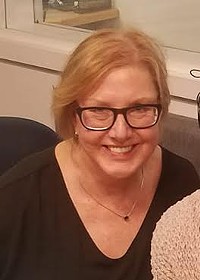Are Utah's best ideas coming from outside the House (and Senate)?
Get ready for the 2023 Utah Legislature
By Benjamin Wood @BjaminWood and Katharine Biele @kathybieleChange is in the air, everywhere—it seems—but at the Utah Legislature.
In Salt Lake City and its environs, thirsty lawns are being replaced with water-wise landscaping; multi-acre McMansions are making way for apartments, condominiums and townhomes; e-bike sales are surging; green power is proliferating; and citizens are increasingly mobilizing to push action on issues from health care reform to economic modernization to the preservation of democracy itself.
How about on Capitol Hill? Only time will tell, but the annual 45-day legislative session that begins next week looks to be more of the same old thing, with lawmakers' priorities so repetitive, a robot could write the preview article for City Weekly. (No really, we had a robot do it! )
In recent years, the voting population made its wishes known on Medicaid expansion, medical marijuana and political redistricting—plus fairly definitive shows of opposition to food taxes and support for liquor deregulation. The Legislature's Republican supermajority dismissed all of the above, preferring to engage in snipe hunts on critical race theory, transgender athletes and ballot fraud, things that exist only in isolated, anecdotal incidents and the fever dreams of far-right conservatives.
On one hand, Utah's population is concentrated in urban and suburban areas along the Wasatch Front. On the other, lawmakers adopted a partisan gerrymander that intentionally dilutes urban political power and that succeeded in making the Utah House a deeper shade of red, with an expanded membership in the unofficial "Crazies Caucus" (they know who they are).
On one hand, legislative leadership used its muscle last year to fund restorative efforts at the Great Salt Lake and to take critical steps toward water efficiency. On the other, those efforts were much too little and far too late, maintaining outsize leniency for agricultural and industrial uses.
On one hand, cities are experimenting with road diets, paved trails and high-frequency transit connections. On the other, the Utah Department of Transportation is sharpening its knives to cut a bigger freeway through west-side neighborhoods and to effectively extend the private ski lifts at Alta and Snowbird to a massive car-parking structure, to be built at the mouth of Little Cottonwood Canyon, at taxpayer expense.
In the following pages, you'll find an overview of the debates to come, as well as examples of regular Utahns who see the writing on the wall and are pushing broader conversations around transportation and environmental policy that get louder with each new participant. Who knows, maybe if Utahns get loud enough—about what they really want, about what actually works—their ostensible representatives might just one day hear them up on the north end of Main Street.
—Benjamin Wood, City Weekly news editor
More by Benjamin Wood
-
Salt Lake City closes Jordan River Trail to launch bond-funded parkway improvements.
Trail Blazing
- Apr 1, 2025
-
Sundance Film Festival ditches Utah for Boulder, Colorado
The End
- Mar 27, 2025
-
UTA launches South Jordan Downtown Trax station, "a baseball throw" away from new Bees ballpark.
Training Day
- Mar 26, 2025
- More »
More by Katharine Biele
-
Utah's embarrassing legislative hangover—no mail-in voting, no Pride flags, no fluoride and no Sundance.
Hits & Misses
- Apr 2, 2025
-
Utah Gov. Spencer Cox says Tesla protesters should go to jail for property damage.
Hits & Misses
- Mar 26, 2025
-
Scared white men get to work wiping America's history of women and minority characters.
Hits & Misses
- Mar 19, 2025
- More »
Latest in Cover Story
Readers also liked…
-
Women decry harassment and toxic culture at St. George auto dealership
Men at Work
- Oct 11, 2023
-
At 98, skiing legend Junior Bounous is still carving up the powder with a smile.
Singing Down the Slopes
- Apr 3, 2024





